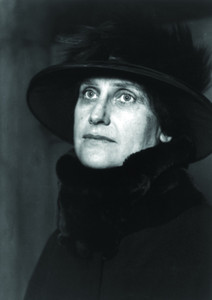Nellie Tayloe Ross: More Than A Woman
Posted by Gunnar Rice on Apr 5th 2020
By Andrew Belonsky
Every year newspapers and historians commemorate Nellie Tayloe Ross’ January 5, 1925, inauguration as the nation’s first female governor. And it certainly was a momentous occasion. Ross, born in Missouri in 1867 but living in Wyoming since 1902, earned the seat in a special election held after her husband, Gov. William B. Ross, died unexpectedly. She hadn’t campaigned for the position, but had been put up by her peers and her seemingly inevitable win was fitting, considering Wyoming was the first in the nation to let women vote, in 1869, when it was a territory. The United States as a whole wouldn’t do the same until 1920.
Ross of course understood the importance of her position, but she didn't think her electoral victory that special, particularly since Miriam "Ma" Ferguson was elected the first governor of Texas two weeks later. Like Ross, Ferguson took the position following her husband, though in her case the first Gov. Ferguson had been impeached. Ross’ first, therefore, was monumental but she wasn’t alone in swimming those uncharted waters — and it certainly isn’t the one thing for which she would like to be remembered.
Ross would most likely want to be commemorated for her progressive politics — abolishing child labor and helping poor farmers were passion projects — or perhaps she would want to highlight her work for the U.S. Mint. As in Wyoming, Ross was appointed the group’s first female Director in 1933, a position she held until 1953.
But again, she didn’t think being the first female anything was something to be celebrated. It was a solemn duty “thrust” upon on her, and one she took very seriously: “[My election] challenges me to rise to the opportunities for service thus made possible, and to dedicate to the task before me every faculty of mind and body with which I am endowed.”
To Ross, political activity was a public service, and not just for elected officials. “Universal suffrage marks a new era in the history of the women of America,” Ross said in a speech to the National Women’s Democratic Club Dinner on March 7, 1925, just two months after her inauguration and five years after women won the vote. “[Suffrage] opens to them the door of unbounded possibilities of service.”
It is for that attitude that Ross should be remembered: her belief that political awareness was a higher, almost divine calling, an idea later propagated by the first Catholic president, John F. Kennedy, who famously made a similar argument in his own inaugural remarks: “Ask not what your country can do for you, ask what you can do for your country.” Ross, then 85, must have liked that.
Ross died in 1977, at the age of 101, but her election, and what she did with it, remain an indelible part of the American story, one deserving more than a once-a-year remembrance.



